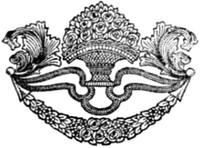|
|
Read this ebook for free! No credit card needed, absolutely nothing to pay.Words: 60443 in 13 pages
This is an ebook sharing website. You can read the uploaded ebooks for free here. No credit cards needed, nothing to pay. If you want to own a digital copy of the ebook, or want to read offline with your favorite ebook-reader, then you can choose to buy and download the ebook.

: The Prison Chaplaincy And Its Experiences by Quinby Hosea - Prisons New Hampshire; Prisoners Religious life; Prison chaplains@FreeBooksWed 07 Jun, 2023 prison officers of like faith with himself on prison management, and profited by any feasible hints thus gained. His motto was, "Keep the prisoners on good fare, provide them all needed means for reform and make all the money practicable from the prison as subordinate to these." The legislature had so far recognized the move as to vote the chaplain an increase of salary in consideration of his labors as teacher in the school. But here it stopped, and that short of its full duty. It ought to have gone further, and made the thing a fixed fact, obligatory upon all prison officers, as really as our common school system outside is upon town officers. Why not? The State has taken the convicts under her care as wards, moved them from their vicious surroundings, and put them where, with a little additional painstaking on her part, many of these may be led to the daily habit of devoting their otherwise idle or squandered moments to storing up valuable ideas for future use, a long step towards their true reform. As leading in the same direction, these gentlemen had adopted the custom of having occasional lectures in the chapel for the men by outside speakers, also readings by a lady elocutionist, and meetings for instruction and drill in singing. This order was not to be deviated from under any circumstances. From this fact, had the prisoners, at any time, risen in rebellion, overpowered the guard and chaplain, they would have found no means in the room for escaping. Or had any professed goodness, or pretended to a great desire for education with the hope of being taken to the chapel under circumstances favorable to their getting away, they would have found it of no avail. Good or bad, professedly reformed or not, all were treated alike in this respect. And, so far as I had the opportunity of observation, the same strictness was observed in all other departments of the prison. True, one escaped, but from no lack of internal watchfulness or order. His time had almost expired, he having been a faithful, obedient, well-disposed prisoner. The warden set him at work doing chores about the stable and outer yard, not supposing that he would leave for so short a period, and thereby forfeit his commutation and render himself liable to be returned at any time through life. But after serving here a few days he absconded. The warden occupies the main building, or middle part. Here, too, are the cook room for the male prisoners, the chapel, the office, guard room, hospital, dormitories for the guards and overseers, and the reception room, in which the library is kept. The prison yard is surrounded on three sides by a granite wall, perhaps sixteen feet high, the prison itself constituting the wall on the fourth side. In the yard are two buildings of brick, each two stories high, one much larger than the other: the smaller, on its lower floor, affording a wash-room, tailor's shop, &c., the second story and attic rooms used for storage or any needed mechanical purpose, sometimes as shoe shops; the larger building is devoted to bedstead manufacturing, the machinery driven by steam. From this engine these two buildings are warmed by means of steam pipes, the boiling in the wash-room being done by the same. The hall is furnished with a steam boiler, which not only warms that, but also the guard and reception rooms, and the chapel, and the steam is used in the men's cook room, all other warming and heating in the prison being done by wood fires. To economize fuel as much as possible, a steam pipe has been extended from the engine room to the prison to conduct the waste steam of the shop boilers for use in those apartments. The female prisoners eat at a table in the warden's kitchen and from the same food as goes to his own table. The men have a prescribed diet, called rations, the allowance of each being dealt out in a tin basin,--meat, potatoes, gravy, &c., all together, the potatoes unpared. Coffee is given in a tin dipper. The meals being ready, the men are marched through an entry by a long table standing contiguous to the kitchen and loaded with their rations, each taking what belongs to him, carrying it to his cell and partaking in solitude. Their mode of eating is quite a curiosity. They generally use their beds for tables, and each has a knife, fork and spoon in his cell of which he takes the exclusive care. He fishes out his potatoes and pares them; but where shall he put the parings, dripping as they are? He has no extra dish. Then how shall he wash his knife, fork and spoon? He can use his tongue, for he has nothing else, and he may or may not have a towel on which to wipe them, but his jacket sleeve or pants' leg is wonderfully convenient. The men are provided with means for ablution by a few bathing-troughs in their wash-room. An old man gave me quite an amusing description of the operation, thus: "The bathing department here is a wonderful institution. They will march a file of men into the wash-room, old and young together, fill the troughs with water, put in a little soap, then a nigger or two to grease it with; when done, the men must strip and go in one after another. A wonderful institution! I never would go that." The female prisoners are employed in mending and making apparel for the men, and in domestic labors in the family apartment. The feeble men are employed in light work about the hall, such as dusting, carrying water to the cells, whitewashing, sweeping, &c., or in repairing clothes. Two able-bodied men are required in the cook room, another in the wash-room and to do chores, and part of the time still another. The remaining men are let to a contractor, who pays a stipulated price per day for each when he works. The needed officers to the institution are the warden, deputy, physician, chaplain, hospital steward, four overseers, four guards, and two night watchmen, fifteen at least. All of these must be paid from the prison earnings. When to this is added the cost for supporting the prisoners, the ordinary repairs, printing the Report and annual apprisal, we have the net prison gain. But the outsets, with the strictest economy, must always of necessity be large, showing that crime is an important drawback to industry and thrift. Free books android app tbrJar TBR JAR Read Free books online gutenberg More posts by @FreeBooks
: An Ode Read August 15 1907 at the dedication of the monument erected at Gloucester Massachusetts in commemoration of the founding of the Massachusetts Bay colony in the year sixteen hundred and twenty-three by Cawein Madison Julius - Poetry@FreeBooksWed 07 Jun, 2023

: Tree Spare that Woodman by Dryfoos Dave - Science fiction; Short stories Science Fiction@FreeBooksWed 07 Jun, 2023
|
Terms of Use Stock Market News! © gutenberg.org.in2025 All Rights reserved.






